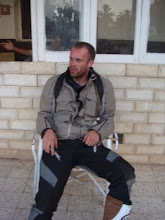There's much about party politics which I don't much like. Chief among these things are the often blind allegiance to a party's line; the partisan's susceptibility to the narcissism of small differences, leaving one to think that supporters of other parties are somehow fundamentally different and less deserving of favour; and the sometimes unquestioning commitment to leaders, who are usually just as fallible as the rest of us. That I am susceptible to all of these things is probably the chief reason I've not been more engaged in active politics, despite my professional and personal obsessions.
But all citizens are not made alike. The same forces that bring out the worst in some of us bring out the best in others. At its best, engagement in electoral politics brings you together with passionate, affable, committed people. These people take up politics not because they want power, or office, or privilege, but because they believe in their cause. Just as often they do it because it is fun. Such people make politics as addictive as its less desirable elements.
My only real experience in politics was when I decamped to Nova Scotia in 2005 to help a friend's father try to win the leadership of the NS Tory Party. I believed deeply in the candidate, whatever my reservations with the party. In the course of four months there, I had the great privilege of working with Susan Millard. Susan was, I gathered, a staple of Halifax politics. With good cheer, dependability, and the right balance of idealism and cynicism, she threw herself into our campaign. She personified what was good about politics. She was not, I estimate, given to its excesses. But she was taken by its virtues. It's people like Susan who make competitive politics work in a humane way.
On Monday, Susan was killed by a car while crossing a street in Halifax. The world was better with her, and is now worse without her. Politics is a little worse, too.



